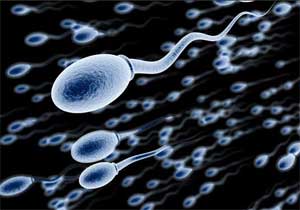- Home
- Editorial
- News
- Practice Guidelines
- Anesthesiology Guidelines
- Cancer Guidelines
- Cardiac Sciences Guidelines
- Critical Care Guidelines
- Dentistry Guidelines
- Dermatology Guidelines
- Diabetes and Endo Guidelines
- Diagnostics Guidelines
- ENT Guidelines
- Featured Practice Guidelines
- Gastroenterology Guidelines
- Geriatrics Guidelines
- Medicine Guidelines
- Nephrology Guidelines
- Neurosciences Guidelines
- Obs and Gynae Guidelines
- Ophthalmology Guidelines
- Orthopaedics Guidelines
- Paediatrics Guidelines
- Psychiatry Guidelines
- Pulmonology Guidelines
- Radiology Guidelines
- Surgery Guidelines
- Urology Guidelines
Antioxidant supplements fail to improve sperm quality in infertile men

An antioxidant formulation taken daily by the male partner for a minimum of three months made no difference to sperm concentration, motility or morphology, nor to the rate of DNA fragmentation, according to the results of a trial presented at the annual meeting of European Society Of Human Reproduction And Embryology.
The study was done in eight American fertility centers which included male participants with infertility. The male factor infertility included sub-normal levels of sperm concentration, motility, or morphology, or higher than normal rates of DNA fragmentation. These sperm parameters were measured at the start of the trial and at three months. In between, the men allocated to the antioxidant intervention were given a daily supplement (in tablet form) containing vitamins C, D3, and E, folic acid, zinc, selenium, and L-carnitine; the control group received a placebo.
At three months the study found:
- Only a "slight" overall difference in sperm concentration between the two groups, and no significant differences in morphology, motility, or DNA fragmentation measurements.
- Sub-group analysis (according to different types of sperm abnormality) found no significant differences in sperm concentration (in oligospermic men), motility (in asthenospermic men), and morphology (in teratospermic men).
- There was also no change seen after three months in men with high rates of DNA fragmentation (28.9% in the antioxidant group and 28.8 in the placebo group)
Read Also: Low sperm count – a marker of health, not just fertility
A further endpoint of the trial was natural conception during the initial three month study period, but this too did not differ between the two groups of the entire cohort - a pregnancy rate of 10.5% in the antioxidant group and 9.1% in the placebo. These rates were also comparable at six months (after continued antioxidant or placebo for the male partner and three cycles of clomiphene and intrauterine insemination for the female partner).
“Many of the previous studies in which antioxidants have been linked to improvements in sperm quality have been limited by small numbers, heterogeneity in patients, a variety of antioxidant, and non-clinical endpoints. This study, therefore, was designed to close these gaps in knowledge and provide a stronger evidence base,” said the authors.
According to the authors, the trial involved three-month study period because spermatogenesis and transport together take approximately 74 days, but that reactive oxygen species have a greater negative effect during the much shorter sperm transport phase rather than during spermatogenesis, thus antioxidants are thought to have benefit even after a short interval.
The study concluded that the results do not support the empiric use of antioxidant therapy for male factor infertility in couples trying to conceive naturally.
A similar study related to the quality of sperm was recently published in Nature Review Urology which was conducted by A.I.I.M.S, New Delhi, which stated that the daily yoga routine significantly improves sperm quality.
Read Also: Daily yoga practice improves sperm quality: AIIMS study

Disclaimer: This site is primarily intended for healthcare professionals. Any content/information on this website does not replace the advice of medical and/or health professionals and should not be construed as medical/diagnostic advice/endorsement or prescription. Use of this site is subject to our terms of use, privacy policy, advertisement policy. © 2020 Minerva Medical Treatment Pvt Ltd